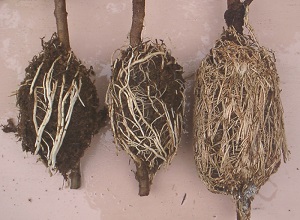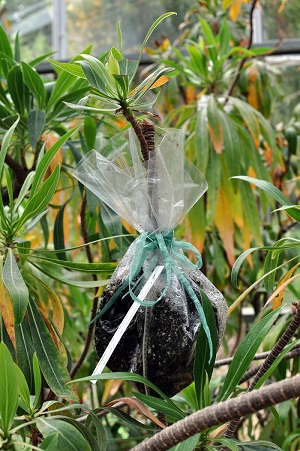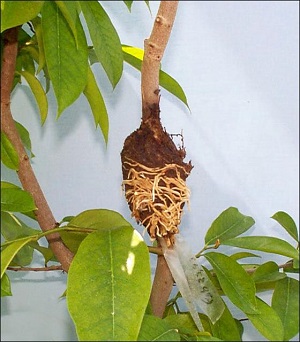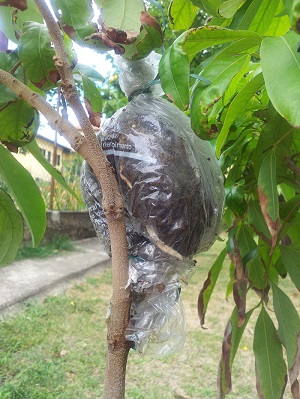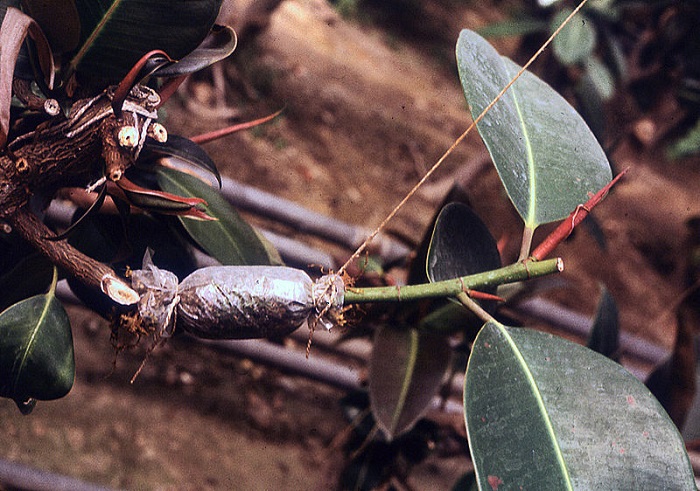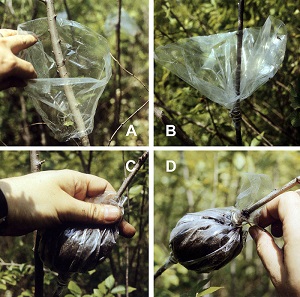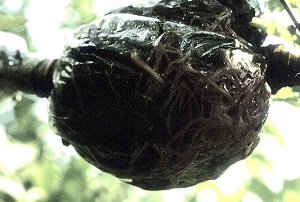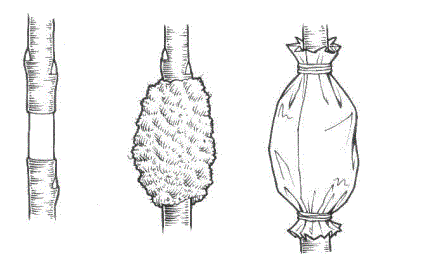Air Layering Images
Step 1. The stem is girlded to induce root formation above the cut Step 2. The girdled stem is covered with damp moss Step 3. Aluminum foil or plastic sheeting (Fig. 7) is wrapped around the moss and tied at both ends. This cover is removed 2-3 months after tying or when the roots can be seen (Fig. 8). Back to Air Layering Page |
||||||||||||||||||
| Photographs Fig. 1 Jaitt, Oscar. Air layering. N.d. fruitlovers.com. Web. 29 Jan. 2014. Fig. 2 Citron. Air layering Limonium dendroides. 2012. Conservatoire botanique national de Brest, France. wikipedia.org. Under (CC-BY-SA-3.0). Web. 20 May 2014. Fig. 3 Maguire, Ian. Air Layering a Lychee Tree. N.d. From Lychee Growing in the Florida Landscape. trec.ifas.ufl.edu. Web. 20 May 2014. Fig. 4 Lorenzini, Iacopo. Lychee air layer on a small potted plant. 2013. commons.wikimedia.org. Web. 31 May 2014. Fig. 5 Mee, Bill and Folino, Krystal. Lychee Tree with Multiple Air Layers and Close-up. lycheesonline.com. N.d. Web. 31 May 2014. Fig. 6,7 Grbic, Mihailo. Air layering of Ficus decora. 1985. Faculty of Forestry, Belgrade, Serbia. wikimediacommons.org. Under (CC BY-SA 3.0 RS). Web. 31 May 2014. Fig. 8 Grbic, Mihailo. New roots have penetrated the moss ball (Air layering of Ulmus pumila). 1986. Faculty of Forestry, Belgrade, Serbia. commons.wikimedia.org. Web. 31 May 2014. Fig. 9 Air Layering. N.d. Food and Agriculture Organization of the United Nations. Cashew Production. Chapter 2. fao.org. Web. 31 May 2014. Published 29 Jan. 2014 LR. Last update 8 July 2016 LR |
||||||||||||||||||
